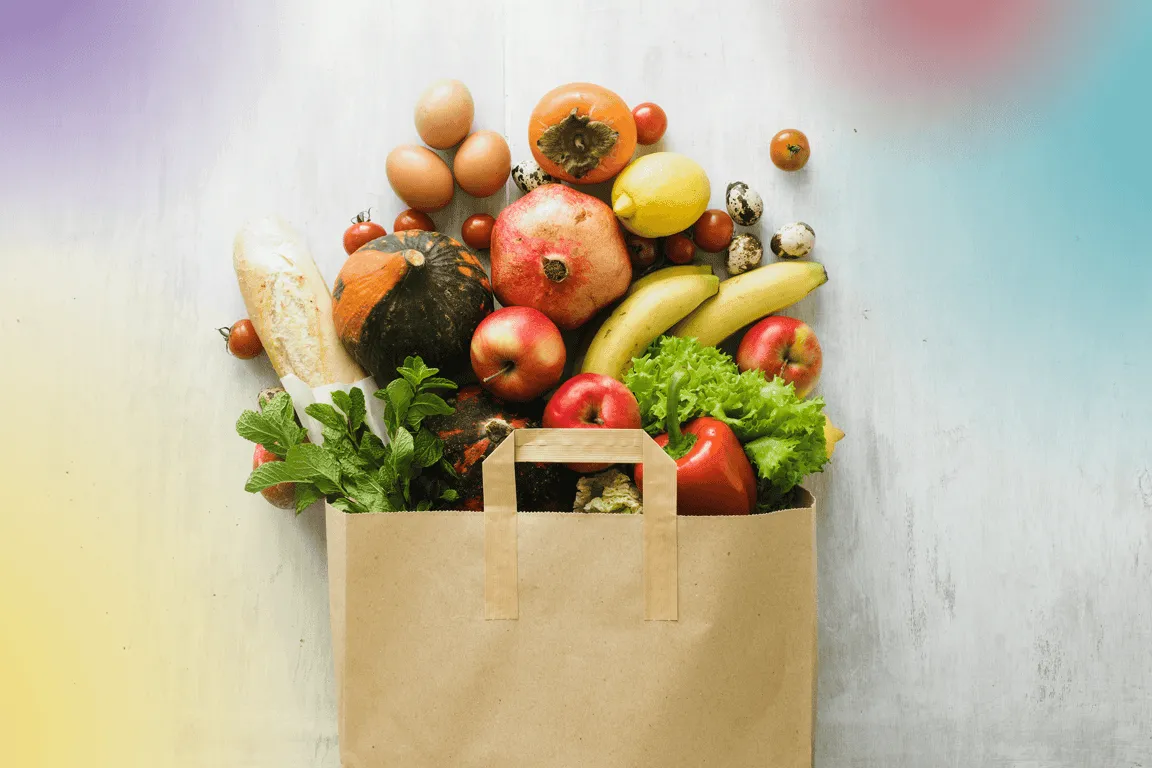Making healthy and delicious food choices is easier than you think.

Welcome to Thriving Mind, a resource to help you understand your individual signs of stress, take small steps to recharge, and unlock better mental health.
From the day we’re born we enter a lifelong relationship with food.
And yet, most of us don’t treat this relationship with the same respect and thoughtfulness as our human relationships: who we choose to date, or marry, or spend time with on any given evening.
Think about the questions you ask yourself when you’re considering entering a relationship with somebody. You probably ask:
1. Is this person good enough for me? And:
2. How much do I know about this person?
Your answers to these questions help you determine whether or not you choose to become involved. And no one would fault you for asking them before entering into something serious.
What if we thought about the act of eating — of putting food inside our bodies — as an equally intimate and important decision?
When we apply these same questions to our food decisions, we can improve our physical and mental health, and open up new ways for us to connect with others and enjoy life. And there’s no better time than World Mental Health Day to begin.
That’s because we’re understanding more all the time about how closely nutrition is linked to our mental health. Studies show that diet quality is linked to common mental disorders including depression and anxiety. And it makes perfect sense: when we feed the brain with higher quality fuel, we’re going to see better outcomes.
Even when we have the best intentions, it’s a challenge to make food decisions that support our mental health. Processed food is everywhere, and so well-marketed that it’s easy to keep consuming it even if we know it’s harming us. Our fast-paced, high-stress lives — and a work culture that too often celebrates burnout — can leave us feeling that suboptimal food choices are simply the price we pay for being successful.
As a result, many of us are finding ourselves in something like an abusive relationship with our food. We’re eating foods that are hurting us — and then coming back for more. And it’s not surprising, given how little we know about some of the foods we’re allowing into our bodies. Knowing where your food came from, who prepared it and what’s inside is key.
For example, if your dinner came from a farmers market and your spouse cooked it in your kitchen, you’re going to have a certain level of trust and confidence that eating it will support your overall health. Compare that kind of food with something you’d find in the processed food aisles of any major supermarket. Can you even pronounce the ingredients on a bag of Doritos? Where did they come from and does the company who made them have a vested interest in your long-term health?
Asking these questions is a way of taking ownership of our food choices and making sure the foods we eat are worthy of us. You don’t need to start reading every ingredient on every label or completely overhaul your diet. Making informed eating decisions can sometimes seem stressful enough. Fad diets are built around restriction and deprivation; when they fail, as they almost always do, they leave us saddled with negative self-talk and self-judgment because we feel like we’ve failed. And then there are the new studies overturning what we thought we knew, making it hard to interpret the information that’s out there, which can make the entire enterprise of healthy eating feel confusing and hopeless.
So, keep it simple. Ask yourself two questions about your food:
1. Is this food good enough for me? (Is it worthy of me?)
2. Do I know enough about where this food came from? (Can I trust that this food will delight me both in the moment I’m eating it and by making me feel good about my choices when I wake up tomorrow and the next day?)
When you start asking these questions, you’ll initiate a mindset shift. Whatever your current relationship with food, you have an opportunity to improve it.
Maybe you think “It doesn’t matter what I eat.” Or maybe you think, “I’m in a rush and I’m just going to grab whatever’s available, no matter how unhealthy it is.” Next time, try a mindset shift. Ask yourself these two simple questions, then invest whatever resources you have — money, time, even just a few minutes of advance planning — to choose something that’s truly worthy of you.
It all comes back to our relationship with food. Food can be a partner that drags you down and depletes your physical and mental health — the kind of partner your friends and family wish you’d break up with. Or it can be a partner that is truly worthy of you, supporting you in your life’s journey, building you up, and bringing you joy. The choice is yours.
This content is informational and educational, and it does not replace medical advice, diagnosis or treatment from a health professional. We encourage you to speak with your health-care provider about your individual needs, or visit NAMI for more information.
Read more of our mental health coverage here.
Follow us here and subscribe here for all the latest news on how you can keep Thriving.
Stay up to date or catch up on all our podcasts with Arianna Huffington here.